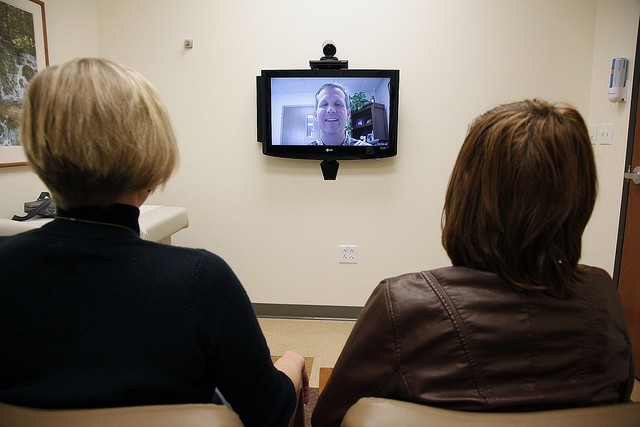
The global adoption of telehealth technologies will potentially allow governments to make substantial savings on healthcare, while delivering important medical services to both rural and under-served communities, according to business intelligence provider GBI Research.
The company’s latest report* states that the telehealth market is being driven by the accelerated development of mobile technology and applications, a greater need for cost-effective healthcare, rising populations, and increased government funding.
Rishikesh Mandilwar and Rodrigo Gutierrez Gamboa, Managing Analysts at GBI Research and co-authors of the report, state that telehealth is defined as the delivery of healthcare or information at a distance via technology, and includes services such as assessment, monitoring, communications, disease prevention, and education. The Insurance Journal estimates that it could potentially deliver over $6 billion a year in healthcare savings in the US if the technology is widely adopted.
Mandilwar says: “Telehealth could achieve such substantial savings for a number of reasons, including the reduction of re-admissions linked to chronic conditions through mobile health monitoring technologies, a decrease in unnecessary use of emergency appointments through remote visits with nurses, and a lower amount of wasted capacity through telemedicine-based appointments.”
GBI Research’s report also states that the primary inhibitor of telehealth market growth is the cost of setting up appropriate facilities and technologies, meaning poorer countries will witness slower uptake and consequently miss out on the full benefits of telehealth in the short term.
Gutierrez Gamboa explains: “Data security concerns and privacy issues, as well as a lack of IT literacy in some developing economies, are some of the major issues currently hindering growth in the market.
“Despite this, there is a wealth of opportunities to be exploited in the market. If telehealth providers are to realize these opportunities, they will have to develop compelling commercial models that seamlessly place their services within a wider system of integrated healthcare.
“Currently, the telemedicine and mobile health segments of the market are the ones to focus on, as they are some of the most promising and fast-growing across the board.”
The analysts add that key players in the overall telehealth space include 3M, Aerotel Medical Systems, AMD Global Telemedicine, CardioComm, Honeywell HomMed, and Philips Healthcare.
